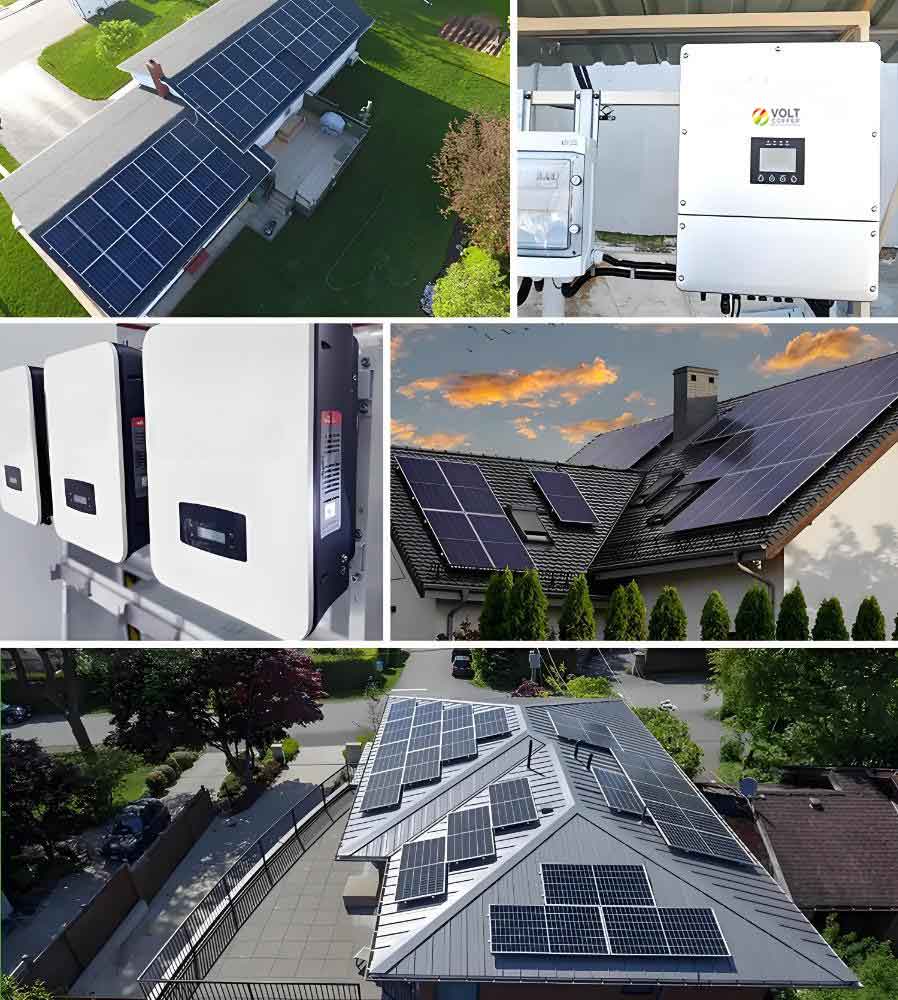As the world faces mounting environmental challenges, the transition to renewable energy sources has become imperative. Home solar battery system play a crucial role in this transition, offering a sustainable way for households to generate, store, and utilize solar energy. This article explores the environmental impact of home solar battery system, highlighting their benefits, potential drawbacks, and overall contribution to reducing our carbon footprint.

Benefits of Home Solar Battery System
1. Reduction in Greenhouse Gas Emissions
Home solar battery system significantly reduce greenhouse gas emissions by storing and using solar energy instead of relying on fossil fuels. This shift helps mitigate climate change and its associated impacts.
Features:
- Clean Energy Source: Solar power is a renewable and clean source of energy that does not produce greenhouse gases during operation.
- Reduced Fossil Fuel Dependence: By using stored solar energy, households decrease their reliance on coal, oil, and natural gas.
2. Lower Energy Consumption from the Grid
By storing excess solar energy for later use, home solar battery system reduce the demand for electricity from the grid. This alleviates pressure on power plants, many of which still rely on fossil fuels.
Features:
- Energy Independence: Households can generate and use their own electricity, reducing grid dependence.
- Peak Load Reduction: Decreasing the demand during peak hours helps reduce the need for additional power plants and lowers overall energy consumption.
3. Enhanced Energy Efficiency
Solar battery systems can enhance energy efficiency by optimizing the use of generated solar power. Advanced energy management systems ensure that stored energy is used when it is most needed, maximizing efficiency.
Features:
- Energy Management: Systems can manage energy flow, ensuring optimal usage of stored power.
- Smart Technology: Integration with smart home technologies allows for automated energy usage adjustments based on demand and availability.
4. Support for Renewable Energy Integration
Home solar battery system support the broader integration of renewable energy into the grid by providing a stable and reliable source of power. This helps overcome the intermittent nature of solar energy and supports grid stability.
Features:
- Grid Support: Battery systems can provide ancillary services to the grid, such as frequency regulation and load balancing.
- Renewable Integration: Enhances the overall penetration of renewable energy sources in the energy mix.
5. Reduction in Transmission and Distribution Losses
By generating and using electricity locally, home solar battery system reduce the need for long-distance transmission, which often results in energy losses. This enhances the overall efficiency of the power system.
Features:
- Local Generation: Electricity is produced and consumed on-site, minimizing transmission losses.
- Distribution Efficiency: Reduces the strain on the distribution network, leading to lower losses.
Table 1: Environmental Benefits of Home Solar Battery System
| Benefit | Features | Environmental Impact |
|---|---|---|
| Reduction in Greenhouse Gas Emissions | Clean energy source, reduced fossil fuel dependence | Lower carbon footprint |
| Lower Energy Consumption from the Grid | Energy independence, peak load reduction | Decreased demand on fossil fuel power plants |
| Enhanced Energy Efficiency | Energy management, smart technology | Optimized energy usage |
| Support for Renewable Energy Integration | Grid support, renewable integration | Improved grid stability, higher renewable penetration |
| Reduction in Transmission and Distribution Losses | Local generation, distribution efficiency | Lower energy losses |
Potential Environmental Drawbacks
1. Resource Intensive Production
The production of solar panels and batteries involves the extraction and processing of raw materials such as lithium, cobalt, and rare earth elements. This can have significant environmental impacts, including habitat destruction and pollution.
Mitigation: Advancements in recycling technologies and the development of alternative materials can help mitigate these impacts. Sustainable mining practices and stricter regulations are also crucial.
2. End-of-Life Disposal
The disposal of solar batteries and panels at the end of their life cycle can pose environmental challenges. Improper disposal can lead to soil and water contamination due to the hazardous materials contained in batteries.
Mitigation: Implementing robust recycling programs and developing eco-friendly disposal methods are essential to minimize environmental harm.
3. Energy and Emissions During Manufacturing
The manufacturing process for solar panels and batteries can be energy-intensive and generate emissions. While the operational phase of these systems is clean, the initial environmental cost must be considered.
Mitigation: Increasing the use of renewable energy in manufacturing and improving energy efficiency in production processes can help reduce these emissions.
Table 2: Potential Environmental Drawbacks and Mitigation Strategies
| Drawback | Description | Mitigation Strategy |
|---|---|---|
| Resource Intensive Production | Extraction and processing of raw materials | Recycling technologies, sustainable mining |
| End-of-Life Disposal | Hazardous materials contamination | Robust recycling programs, eco-friendly disposal methods |
| Energy and Emissions During Manufacturing | Energy-intensive processes, emissions generation | Renewable energy in manufacturing, efficiency improvements |
Overall Environmental Contribution
Carbon Footprint Reduction
Despite the potential drawbacks, the overall environmental contribution of home solar battery system is significantly positive. By enabling households to use clean energy and reducing reliance on fossil fuels, these systems contribute to substantial carbon footprint reduction.
Promotion of Sustainable Practices
The adoption of home solar battery system promotes broader sustainable practices, encouraging other forms of renewable energy and energy efficiency measures. This contributes to a more sustainable and resilient energy system.
Support for Circular Economy
Advancements in recycling and the development of sustainable materials support the circular economy, where products are designed for reuse and recycling, minimizing waste and environmental impact.
Conclusion
Home solar battery system play a crucial role in achieving a sustainable energy future. While there are challenges associated with their production and disposal, the benefits of reducing greenhouse gas emissions, lowering grid dependence, enhancing energy efficiency, and supporting renewable energy integration far outweigh these drawbacks. With continued advancements in technology and sustainable practices, the environmental impact of home solar battery system will become increasingly positive, paving the way for a cleaner, more resilient energy landscape.
